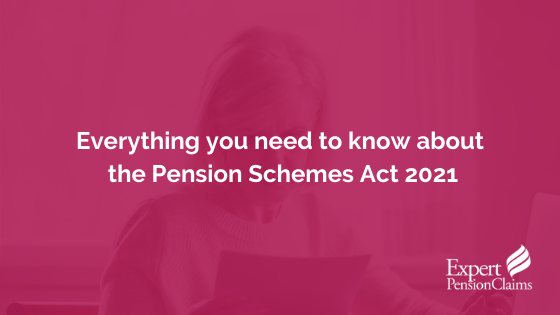Just as Christmas is a time for family, food, and fun, it’s also a prime time for opportunist scammers to ply their illicit trades. From Christmas phishing scams and online fraud to Facebook Christmas scams and bogus gift cards, it’s a time to be vigilant.
Use our guide, ‘12 scams to watch out for at Christmas’, to ensure that your Christmas is not tainted with the kinds of financial hardship that so many families fall victim to. Take a look.
1. Fake charities
Bogus charities are really popular around Christmas, as it’s the season of goodwill and more people genuinely want to give what they can to charity. If you get an email from a supposed charity, please check it’s genuine. Hover your mouse over the link within the email. Unless it says www.charityname.org/donate (or something to that effect), we recommend you delete the email. Generally, do a little research and if you can’t find any trace of the charity online then delete the email.
2. Temporary online stores
Known as ‘pop-up stores’, around Christmas there are often a number of stores that claim to deliver through the Christmas period where other stores may stop delivery sometime before Christmas Day. If you come across an online store where the delivery times seem too good to be true, they probably are. Ensure that you don’t leave things until the last minute and you’ll avoid getting burned by these ‘pop-ups’ (they usually take your money and take the website off the internet completely).
3. Fake gift cards
Almost every Christmas, fake gift cards appear as if from nowhere and all at once. Make sure that you buy gift cards from certified and trusted stores – getting them from elsewhere runs the risk of losing money needlessly. Don’t give them the satisfaction and protect yourself!
4. Christmas phishing scams
Phishing scams are rife the rest of the year, but they’re particularly bad around Christmas. You’ll get an email asking you to open a link which, if opened, has the potential to obtain all your personal information including debit card data and more (not to mention possibly breaking your computer software, too).
5. Scam ticket websites
Scam ticket websites are also popular during Christmas, as duplicate websites pop up everywhere with almost identical setups to the likes of Ticketmaster and LiveNation. Many believe that such sites are legitimate when, in fact, they will take your payment information and you won’t hear from them again. Not only will you not attend the event, but you’ll also be out of pocket.
6. Credit/debit card fraud
As spending on cards increases in the run-up to Christmas, so does credit and debit card fraud. To protect yourself from fraud like this, keep your details strictly confidential and to yourself, and keep an eye on your finances with the help of a mobile app as this will help you stay vigilant.
7. Holiday fraud
If you’re ever looking to get away one Christmas, you should be wary of holiday fraud. Try to make payments using credit cards as you’ll always be protected. Elsewhere, use companies that are ABTA or ATOL protected, and generally do plenty of research before you put money down. Use reviews to check if a holiday booking company is legitimate.
8. Social media scams
Social media has always been used by scammers, but over Christmas, it’s a particular problem. Many of them work by inviting you to click on ads. Once you’re through to the link, your device can be exposed to any number of malware infections that pry your personal information from your mobile. We recommend that you don’t click on ads unless it’s clearly a legitimate brand.
9. Auction fraud
Lots of people like buying unique online auction pieces as Christmas presents. Increasing numbers of criminal opportunists have seized upon this. Be aware of deals that seem too good to be true, because there’s a good chance that they are and you’ll never hear from the seller again.
10. Fake delivery emails
We get a lot of delivery emails in the run-up to Christmas, right? Over Christmas, there are also lots of fake companies sending similar emails – they will look just like emails from brands you know and trust. They may ask you to click through a link to ‘confirm your bank details as we’ve had an issue putting the order through’ (or something like that). Use your judgement and scrutinise the email in question.
11. Tax refund claims
Everyone wants a tax refund over Christmas, right? Opportunists know this too well, which is why scam tax refunds are rife through the period. If you get an email from what purports to be the HMRC saying that you’re due a refund, scrutinise the email. Do your research, and even get in touch with the HMRC to verify whether or not it’s legitimate. Just don’t fall for it!
12. Counterfeit goods
As more and more people look for bargains in a bid to save a little money, there are increasing numbers of counterfeit products being sold on the likes of eBay and Facebook selling groups. Remember: if it seems too good to be true, it probably is! Don’t expose yourself to potentially harmful electrical goods and foodstuffs that aren’t the real thing.
Ever been a victim of a mis-sold pension scam? We can help
Our expert pension claims team can give you the guidance needed to recoup any money lost as a result of a mis-sold pension scam. If you have had a SIPP pension mis-sold to you then you need to act quickly. Our enquiry form takes just 30 seconds to fill out. Once you have, we’ll be in touch. To further educate yourself, visit our blog section which is regularly updated. Here are a few blog posts that may be of interest to you:














